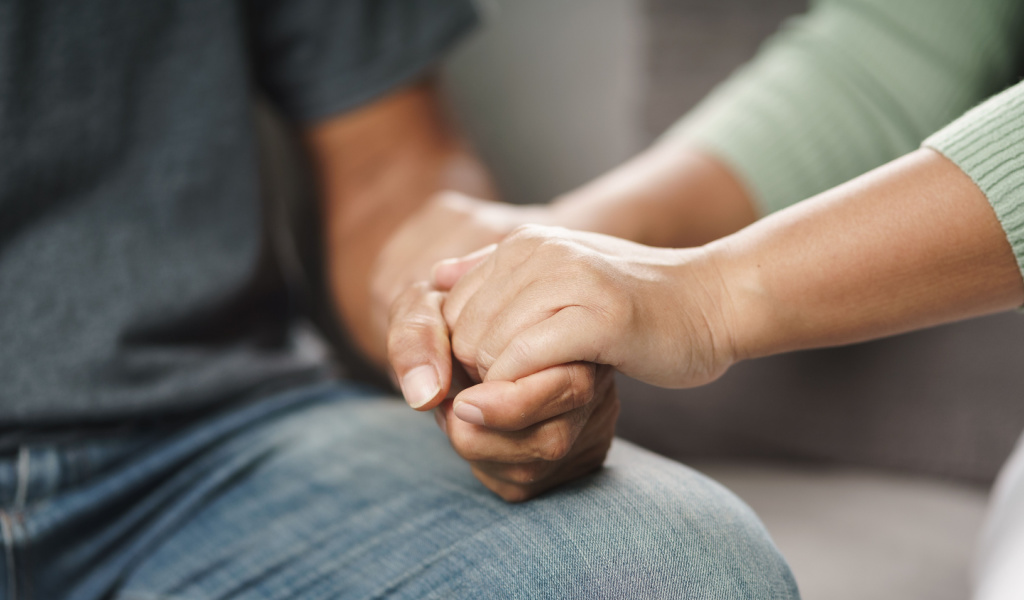Depression is a mental health condition that affects over 16 million adults in US and millions more around the world. It can bring about severe and devastating consequences in a person’s life, affecting everything from their work to simple everyday activities. It can also put a strain on relationships with friends and family, and loving someone with depression is not an easy task.
But, as the partner of someone with depression, you have a responsibility to help them deal with it. It is not different to helping your partner if they happen to have a broken arm – only their illness concerns mental health instead!

Having a supportive partner can make a significant impact in a person’s journey to recover from depression. Let’s discuss some ways in which you can help your partner do that:
Read Up On Depression
Although a significant number of individuals all around the world deal with depression every day, there is still a lack of appropriate knowledge about the condition among the general public. To help a partner deal with depression, it’s important that you learn about it first. This way, you can be aware of the right way to approach the problem instead of exacerbating it.
Some of the most common symptoms of depression include:
- Feeling sad and worthless all the time
- Losing interest in activities that they enjoyed in the past
- Feeling unmotivated or lethargic
- Changes in sleeping habits
- Changes in appetite, losing or gaining weight suddenly
- Thoughts of death or suicide
Understand & Acknowledge Their Feelings
Depression, as an illness, can range from mild to severe. To understand where your partner may be and how you can help them, you can talk to them. Some questions to ask them include:
- How are you feeling?
- Is there anything you would like to do?
- What can I do to help?
If they decide to share their feelings with you, it’s important to listen to them and validate their feelings. Respond with empathy and understanding. While you can try and make them feel better, its best to refrain to toxic positivity – this will only make them feel like you are downplaying and dismissing their emotions. Saying things like “that’s not such a big deal” or “don’t be so sad” are not helpful! Sometimes, all your partner needs is for you to hold their hand and listen.
Don’t Take It Personally
Depression can cause drastic changes in a person’s mood and habits. As the person closest to them, they may take their anger or irritability out on you. They may withdraw from you or refrain from intimacy. It’s crucial that you understand that none of that is about you! Don’t take things too personally and remember that it is the illness that is making your partner act this way. If your partner seems to be acting discordantly, this is a sign that they may require professional treatment.
Shower Them with Love
Depression can make a person feel unworthy. They may feel like a burden to their loved ones and feel guilty about the “inconvenience” they’re causing. Show them they’re wrong by showering them with love and support. Let them know that you understand how they feel but you will continue to love and support them through their journey to recovery.
The small things matter. Try to do little things that make them feel loved. Maybe you can pick up their favorite drink when you’re out on an errand or make them their favorite meal. Ask them about their day and celebrate the little wins. Offer them hope by reminding them the positives in their life and the hard things they’ve already overcome.

Encourage Treatment
If you think that your partner’s depression has progressed, it’s best to encourage them to get professional help. The National Institute of Mental Health claims that most people with depression need treatment to recover – and it is no different from getting medical help for any other physical ailment.
A depressed individual may not feel motivated to get help, so you can nudge them along gently by sharing your concerns and offering to help. Certain times, they may not even realize the severity of their symptoms, and it may be up to you to (gently) get them to acknowledge how bad things are. Other ways you can help with their treatment include documenting your partner’s symptoms, discussing treatment options, reminding them to take their medication, and helping them make lifestyle changes.
Support Their Journey to Recovery
Recovering from depression can be a tricky path to navigate. As your partner tries to pull them out of the depths of the illness, be the rock they can rely on. Some things you can do for your partner at this time are:
- Helping them book appointments and accompanying them
- Reminding them to take their medications
- Encouraging them to go outside and exercising together
- Helping them plan their day and setting small goals to achieve
- Preparing healthy meals and eating together
- Getting rid of triggers and reducing stress at home
- Planning fun activities and encouraging them to spend time with loved ones.
- Helping them map out their progress on their journey to recovery
Take Care of Yourself
Caring for a loved one facing depression can be scary and exhausting. In fact, research indicates that a person’s risk of developing depression increases when caring for a spouse with it. It is important that you take care of yourself first so you can be there for your partner to the best of your ability. So, take time to do the things you enjoy. Try to stay positive, eat healthy, engage in physical activity, and cultivating good lifestyle habits. Accept that there will be bad days, and find ways to deal with them, such as reminding yourself that it is all part of the process or taking some time for yourself.
It’s also important to make time to socialize with people other than your partner. It may even help to join support groups for partners of those with depression. It will help you ask for help if you start facing difficulties. You and your partner may also consider attending couples therapy or family counseling.



